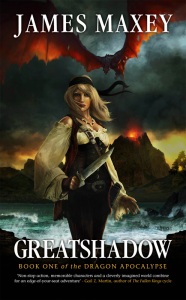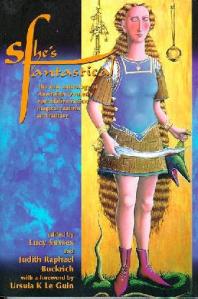I have been featuring fantastic female fantasy authors (see disclaimer) but this has morphed into interesting people in the speculative fiction world. Today I’ve invited the talented Rob Kaay to drop by.
Look out for the give-away at the end of the post.
 Q: You’ve worked as a professional musician. (Rob was signed with Columbia records in his twenties and was based in New York and Melbourne. He had an epiphany when he turned thirty, returned to Perth and started working on Silverbirch his dark urban fantasy novel). Rather than approach a traditional publisher, you went straight to self publishing. I know many traditionally published writers are re-releasing their backlists by self publishing. What was your reasoning behind taking the self publishing route?
Q: You’ve worked as a professional musician. (Rob was signed with Columbia records in his twenties and was based in New York and Melbourne. He had an epiphany when he turned thirty, returned to Perth and started working on Silverbirch his dark urban fantasy novel). Rather than approach a traditional publisher, you went straight to self publishing. I know many traditionally published writers are re-releasing their backlists by self publishing. What was your reasoning behind taking the self publishing route?
A: As soon as I finished my first draft of Silverbirch, I sent out twenty query letters, with the first three chapters attached, to some of the biggest publishing companies and agents in the world. I aimed high. One of the bigger firms got back to me with an interest to see more of the novel once I had completed the second draft. It gave me great motivation to work on the book some more. The only problem was, once I completed the second draft, I could see the possibility of the company liking the book and maybe picking it up. A scenario flashed before my eyes that resembled what had happened to my band in the music industry, our music being picked up by a major label. A system controlling how, when and why my work was released. That whole situation; where a massive corporation was in total control of my artistic expression, left a sour taste in my mouth and caused me to want to work solo from that point forward. I was reluctant to hop on that merry-go-round again, so I didn’t bother sending the second draft. I released Silverbirch; A Tear in the Fabric of the Night Sky myself and plan on doing that with all my music and books in the future.
With the upcoming sequel, Silverbirch; Fall of the Epicenter, I am currently editing the third draft and have no plans on showing publishers or agents. I don’t care how many copies I sell, I have written the sequel exclusively for those people who have found and enjoyed the first book.
 Q: While you were on the road touring your wrote two journals about this experience. (See here). About one of them you say ‘this is what it’s really like being in a band’. Are these journals the sort of thing you don’t want your mother to read?
Q: While you were on the road touring your wrote two journals about this experience. (See here). About one of them you say ‘this is what it’s really like being in a band’. Are these journals the sort of thing you don’t want your mother to read?
Actually, they’re both about what it’s really like being in a band. I didn’t write the journals about one specific band though. I created characters based on a number of different people in a number of bands I’ve been in and/or supported. The character of Robkaay however is heavily based around myself.
I deliberately wrote the books in a journal type format to give kids who are thinking of dedicating their life to being in a touring rock band an up close and personal spectrum of exactly what is involved. From what it’s really like to take drugs, sleep with groupies and be drunk for weeks on end. In reality, it’s a lot different than how cool it sounds. There are dark moments when my character talks from inside a depression and can’t believe he has sacrificed a beautiful relationship for the sake of a small piece of delusional unattainable fame.
As for the second part of your question . . . normally, if you’re in a rock band and you write about what it’s really like, you don’t want your mother to read it. However, in my case, my mum was the editor! Every few chapters she would ring me and ask, “Is this a character you are writing or did this really happen?!”
 Q: From doing these author interviews I know that about 75% of writers are aural – they play music while they write, some even go so far as to make up lay lists of certain types of music to get them into the zone for a particular book. (The other 25% are visual and make up folders of photos). As a musician you have a soundtrack that goes with Silverbirch (available here). Is this because the music and the story are so intertwined that you can’t imagine producing one without producing the other?
Q: From doing these author interviews I know that about 75% of writers are aural – they play music while they write, some even go so far as to make up lay lists of certain types of music to get them into the zone for a particular book. (The other 25% are visual and make up folders of photos). As a musician you have a soundtrack that goes with Silverbirch (available here). Is this because the music and the story are so intertwined that you can’t imagine producing one without producing the other?
While writing Silverbirch, sometimes I listen to my own instrumental music, but mostly I listen to other bands. I listen to lots of Trent Reznor’s instrumental stuff like Ghosts I-IV, the Fight Club soundtrack, Moby’s free instrumental music, instrumental Crosses . . . anything really, as long as it’s cool and dark . . . just as long as there are no vocals. Vocals distract me. (Rob is giving away a free EP to accompany Silverbirch).
Q: Regarding your premise for Silverbirch you said: ‘I’ve always been interested in what causes people to do crazy things when they’re not in control of themselves, like when they’re drunk, on drugs, angry or sleep deprived. Obviously in a touring rock band, I saw a lot of people doing crazy things they couldn’t remember, so I decided to create a race of people called Silvers who were influencing our decisions. That’s pretty much how Silverbirch; A Tear in the Fabric of the Night Sky was born.’ Did you research psychology to help you with the building of the Silvers’ society?
Nope. I’m just writing fantastical ideas as I see them in my mind.
 Q: You are working on a sequel to Silverbirch. ‘I specifically went travelling last year to the Lake District and London in England and Jordan in the Middle-East and Egypt and visited the Mayan Ruins in Mexico to write the sequel. I learned as much as I could about what the Egyptians and Mayans believed and wrote most of the next Silverbirch on the road.’ What do you look for when you travel like this? Are you going to specific places to set story elements, or are you looking for the feel of the place?
Q: You are working on a sequel to Silverbirch. ‘I specifically went travelling last year to the Lake District and London in England and Jordan in the Middle-East and Egypt and visited the Mayan Ruins in Mexico to write the sequel. I learned as much as I could about what the Egyptians and Mayans believed and wrote most of the next Silverbirch on the road.’ What do you look for when you travel like this? Are you going to specific places to set story elements, or are you looking for the feel of the place?
With Egypt, Jordan and Mexico, I wanted to learn more about ancient civilizations and marvel at what they accomplished and wonder at how. Some of the things these ancient civilizations knew and could build between 3000 and 6000 years ago blows your mind. Especially when you’re there, seeing how they made everything happen without mechanical engineering or steel. How the hell did they pile 4-tonne slabs of stone on top of each other to form the Pyramids of Giza, fifty stories high, without steel cranes? It’s still a mystery. Also, what happened to the ancient Egyptians as a race of people and what is the true meaning behind their hieroglyphics?
When I travel to places with as much history as this, I like to immerse myself in the environment and allow my imagination to ask me all sorts of questions that most people would deem as weird. It helps to unlock story ideas and pathways in my wild imagination.
With other places, like London and Grasmere in England . . . I talked my girlfriend into specifically visiting London because I wanted to write about Nudge storming the BBC Studios. With Grasmere, I heard they had an abundance of silver birch trees. The BBC Studios and the town of Grasmere have become key locations in the next book. I find that I can’t write about a place properly and make it believable unless I’ve physically been there.
 Q: The art for Silverbirch is particularly nice. Are you also an artist, or did you hire a freelancer to produce this artwork?
Q: The art for Silverbirch is particularly nice. Are you also an artist, or did you hire a freelancer to produce this artwork?
I know, I like to do everything I on my own! But no, I am super crap at drawing. If you asked me to draw you a stick figure of a man with shoes on, I’m sure it would come off looking more like a twisted tree with roots sunk in two ugly pots.
Ken Taylor from Melbourne illustrated the ‘young Nudge holding the mushroom‘ graphic for A Tear in the Fabric of the Night Sky. Dan Mumford from London illustrated the ‘female reptilian from Venus‘ graphic for the upcoming novel, Fall of the Epicenter.
Q: With your background in music, do you plan to do more cross-platform releases or ‘enhanced’ e-books in future?
As a musician and author, I am seriously looking to explore greater ways to tell a story in the future. For now, other than releasing my stories in written form, I am also creating podcasts, writing most of the music myself.
Q: I was prompted to start this series of interviews because there seems to be a perception in the US and the UK that fantasy is a bit of a boy’s club. Do you think there’s a difference in the way males and females write fantasy?
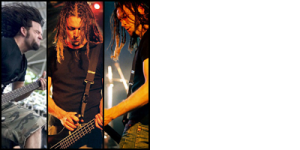 I don’t think there is a difference just because a male or female writer has written something. I think the difference comes from how different we all are as general Humans in the way we see the world. How different we are all individually brought up in various environments with vast belief systems. Everyone has something to say, regardless of gender. If it’s interesting enough, lots of people will want to read the writing.
I don’t think there is a difference just because a male or female writer has written something. I think the difference comes from how different we all are as general Humans in the way we see the world. How different we are all individually brought up in various environments with vast belief systems. Everyone has something to say, regardless of gender. If it’s interesting enough, lots of people will want to read the writing.
Q: Following on from that, does the gender of the writer change your expectations when you pick up their book?
Not at all.
Q: And here’s the fun question. If you could book a trip on a time machine, where and when would you go, and why?
First up I would dial in the year 3000 B.C. to Egypt. I want to see how they built the pyramids! Second, I would dial in 3000. I want to see how technology advances in the future. I want to know what will become of the people of Earth and whether Humans are still the dominant species!
Giveaway Question: If you could go back stage and mingle with any band in the last 60 years, which band would it be and why?
(Rob is offering a paperback edition of Silverbirch; A Tear in the Fabric of the Night Sky and two signed limited edition bookmarks and stickers to a randomly selected winner!)
Catch up with Rob on Shelfari
Catch up with Rob on Goodreads
Catch up with Rob on Linkedin
Catch up with Rob on Facebook
Follow Rob on Twitter @robkaay


















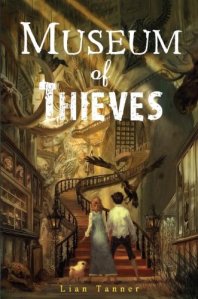


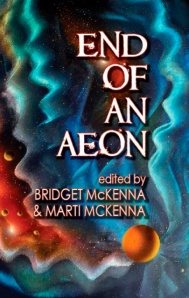


![Sebold-BabylonSteel-PhoneboothCard_thumb[1]](http://writersagainstobscurity.files.wordpress.com/2012/02/sebold-babylonsteel-phoneboothcard_thumb1.jpg?w=192)

